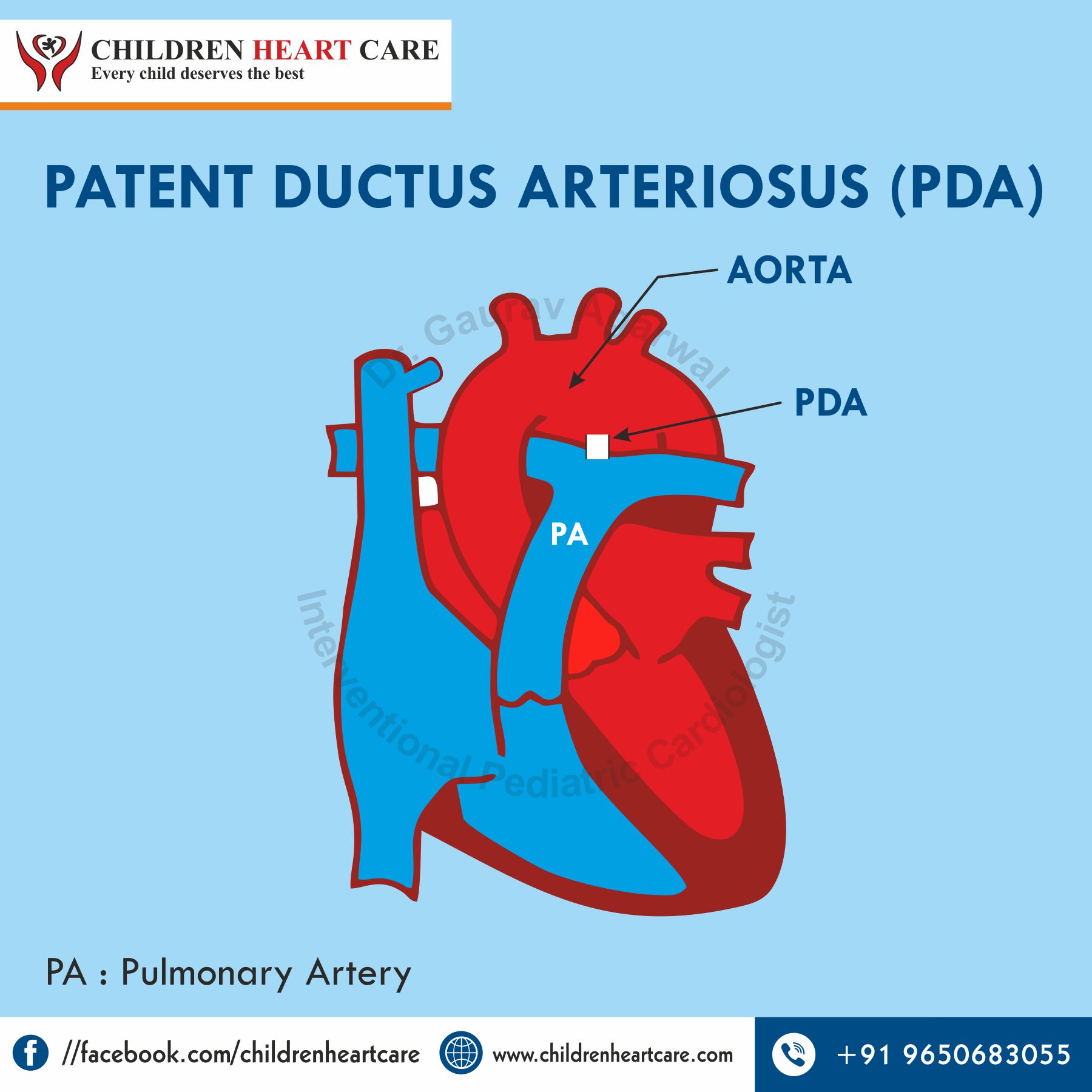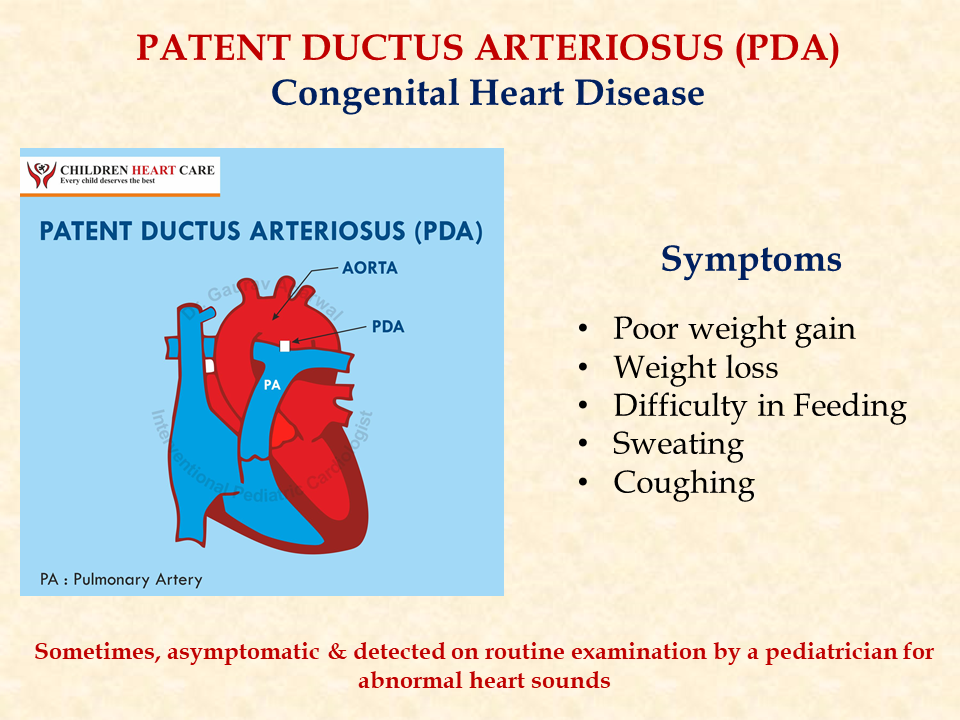What is Patent Ductus Arteriosus (PDA)?
This is a hole that is normally present when the child is in mother’s womb (i.e. in fetal stage). This is a hole or connection between two great vessels of heart, i.e. descending aorta and left pulmonary artery etc. It generally closed within 48-72 hours of birth in majority of newborns.
What is Preterm PDA?
Preterm PDA’s (immature babies) are having less muscles and so less prone for spontaneous closure as compared to term (mature babies) babies PDA.
Preterm babies are less able to tolerate adverse effects due to PDA as compared to term babies so may require early closure of PDA in preterm babies.
How PDA manifests in pediatric patient?
It depends on age of baby, maturity of newborn as well as on size of PDA itself.
In preterm babies especially those who are less than 1500 grams (1.5 Kg) may present in the form of heart failure, long dependency on ventilation, poor weight gain, etc.
Matured newborns (term babies) with moderate to large sized PDA are generally asymptomatic in first few days of life. Then around 1-2 months of age, can present as feeding difficulty, poor weight gain, sweating over forehead etc. If PDA is small in size, then babies are generally asymptomatic and comes to know on routine examination by a pediatrician by hearing an abnormal heart sound (murmur).
How it can be diagnosed?
It can be suspected on clinical examination and for confirmation, few tests can be done, like ECG, chest X ray but confirmatory test for diagnosing PDA is by doing pediatric echocardiography (2D-ECHO).
Echo test is a non-invasive test and it is not painful to the child. This test generally takes 5-10 minutes for completion.

Dr Gaurav Agrawal is a Pediatric Cardiologist (Child and Fetal heart Specialist). Dr Agrawal is a pediatrician who has specialized training in the treatment of various child heart related problems (neonates to 18 years of age). He is also having a vast experience in fetal echocardiography.
He is one of the very few pediatricians in India who practices pediatric cardiology exclusively. Cardiac problems in children are common in children, sometimes life threating and often not diagnosed properly. Early diagnosis and timely treatment is very important. Areas of specific interest include child echocardiography including fetal echocardiography, diagnostic and therapeutic cardiac catheterization (pediatric cardiac holes closure by device, opening of obstructed cardiac valves by balloons etc).



